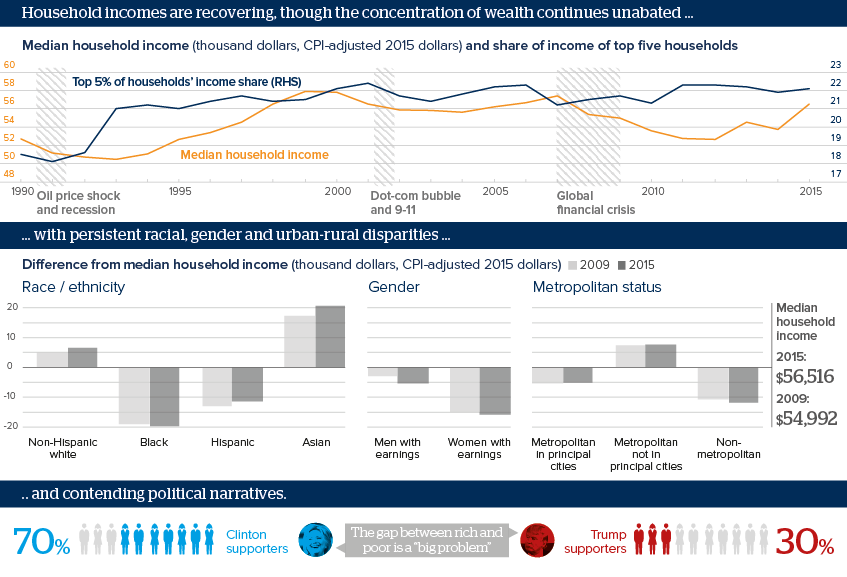Politics will temper US income inequality debate
Persistent social inequalities underline top-level US household income growth
Source: US Census Bureau, Pew Research Center, US Bureau of Labor Statistics, Oxford Analytica
Outlook
The US Census Bureau reported in September that 2015 saw a 5.2% year-on-year rise in median household incomes, the first annual increase since 2007 and the largest since records began in 1967.
When combined with an unemployment rate of 4.9%, a 1.2% decline in the poverty rate and record access to health insurance, Democratic presidential candidate Hillary Clinton will have ample statistical grounds to seek electoral dividends for President Barack Obama's economic record in her race against Republican Donald Trump.
The economy routinely ranks as the most important issue to the US electorate in public opinion surveys, but voters' perceptions of top-line improvements in the macroeconomic data pass through a strong socio-cultural filter that maps onto partisan affiliation.
Impacts
- The fall in energy prices that contributed to the sharp rise in inflation-adjusted income will probably be a temporary effect.
- A Clinton loss on November 8 would likely see the Democratic Party take a stronger line in favour of redistribution.
- Post-election Republican efforts to undermine the Affordable Care Act ('Obamacare') would probably boost income inequality.
- Trump has echoed populist frustrations with the financial sector, but selective enforcement would be his likely approach in office.
See also
- Low-growth economy will shape post-Obama US politics - Oct 11, 2016
- US household income boost may not carry over to growth - Oct 7, 2016
- Prospects for US politics to end-2016 - Jun 14, 2016
- More graphic analysis
